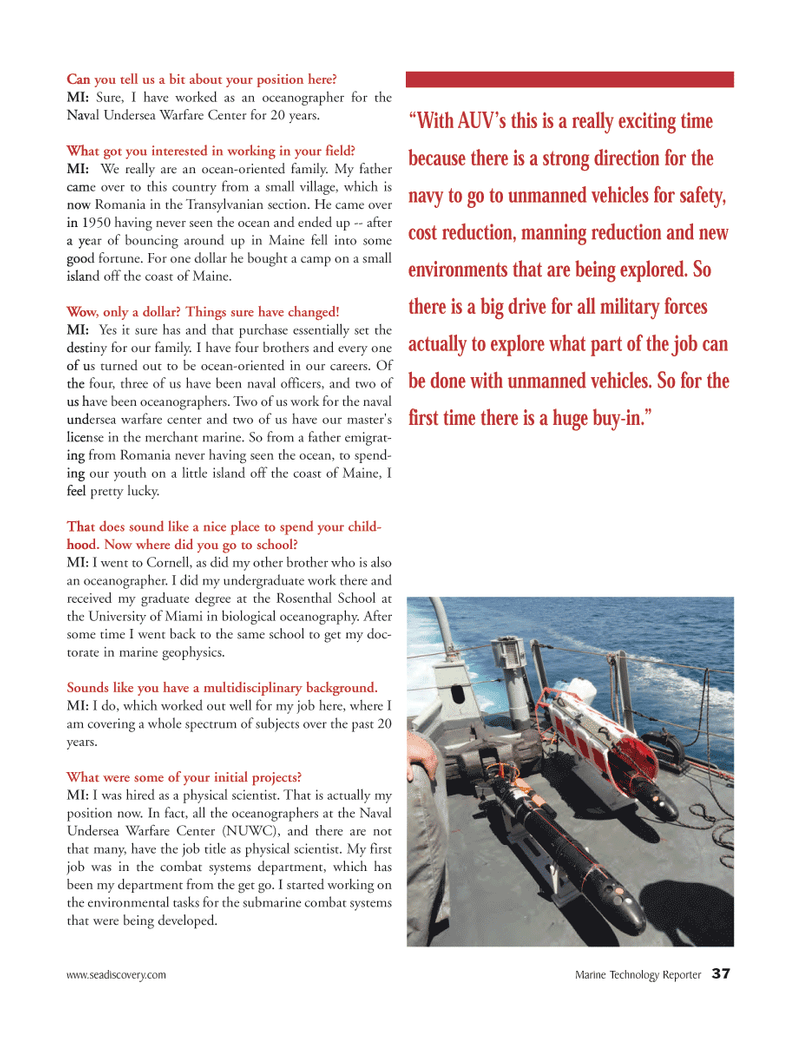
Page 37: of Marine Technology Magazine (May 2012)
Hydrographic Survey
Read this page in Pdf, Flash or Html5 edition of May 2012 Marine Technology Magazine
www.seadiscovery.com Marine Technology Reporter 37Can you tell us a bit about your position here? MI: Sure, I have worked as an oceanographer for the Naval Undersea Warfare Center for 20 years. What got you interested in working in your field? MI: We really are an ocean-oriented family. My father came over to this country from a small village, which is now Romania in the Transylvanian section. He came over in 1950 having never seen the ocean and ended up -- after a year of bouncing around up in Maine fell into some good fortune. For one dollar he bought a camp on a small island off the coast of Maine. Wow, only a dollar? Things sure have changed! MI: Yes it sure has and that purchase essentially set the destiny for our family. I have four brothers and every one of us turned out to be ocean-oriented in our careers. Of the four, three of us have been naval officers, and two of us have been oceanographers. Two of us work for the naval undersea warfare center and two of us have our master's license in the merchant marine. So from a father emigrat- ing from Romania never having seen the ocean, to spend- ing our youth on a little island off the coast of Maine, I feel pretty lucky. That does sound like a nice place to spend your child- hood. Now where did you go to school? MI: I went to Cornell, as did my other brother who is also an oceanographer. I did my undergraduate work there and received my graduate degree at the Rosenthal School at the University of Miami in biological oceanography. After some time I went back to the same school to get my doc- torate in marine geophysics. Sounds like you have a multidisciplinary background. MI:I do, which worked out well for my job here, where I am covering a whole spectrum of subjects over the past 20 years. What were some of your initial projects? MI:I was hired as a physical scientist. That is actually my position now. In fact, all the oceanographers at the Naval Undersea Warfare Center (NUWC), and there are not that many, have the job title as physical scientist. My first job was in the combat systems department, which has been my department from the get go. I started working on the environmental tasks for the submarine combat systems that were being developed. ?With AUV?s this is a really exciting time because there is a strong direction for the navy to go to unmanned vehicles for safety, cost reduction, manning reduction and new environments that are being explored. So there is a big drive for all military forces actually to explore what part of the job can be done with unmanned vehicles. So for the first time there is a huge buy-in.? MTR#4 (34-49):MTR Layouts 4/27/2012 9:41 AM Page 37

 36
36

 38
38
